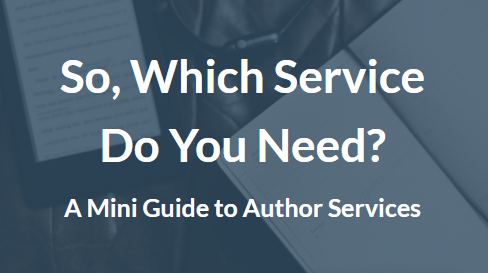So, Which Service Do You Need?
A Mini Guide to Author ServicesRead
Edit
Write
… and More
(Coming Soon!)
Which Author Services are the Most Important?
The two essential services every book should have are beta reading and copyediting. As an author, you need feedback from multiple readers before your book hits the market, and you need to have a professional make sure the book makes the impression you want it to make (few errors, no inconsistencies, etc.).
Beyond that, use your best judgment.
- If you have a partial or complete rough first draft but are unsure of what you’ve written or what you plan to write (if unfinished), consider an alpha reading.
- If the rewritten and self-edited version completed after assimilating beta reader analysis still doesn’t feel right, consider manuscript evaluation.
- If you feel your writing lacks flow and clarity, consider line editing instead of copyediting.
- If you want to give your manuscript a final polish after all the edits–when you think it is really, honestly, actually done–consider proofreading.
Keep reading for a thumbnail sketch of each service!

Alpha Reading
For fiction, alpha reading is a high-level analysis at your work-in-progress or just completed story; think of it as a very light developmental edit of a rough partial or complete first draft. I evaluate the current state of your story as well as your plan for the rest of it (if it is unfinished and if you have an idea of where it is headed), and I give insights and make suggestions about plot structure, character development and arcs, and other elements of fiction.
For nonfiction, an alpha reading will analyze the structure of your book and information flow, as well as determine if the promise of your title, subtitle, and description (rough OK!) is fulfilled.

Beta Reading
For fiction: What would a reader who loves your story’s genre think about your book? That’s what beta reading is all about. Beta reading looks at the elements of fiction–character, plot, voice, setting, dialogue, etc.–from a passionate reader’s perspective.
For nonfiction: What would a reader familiar with and interested in your subject think about your work? Beta reading looks at your book’s promise and delivery from an informed reader’s perspective.
NOTE: I chose a Kindle for this picture because I always make a MOBI of a book I beta read if an author doesn’t provide one, as I like to curl up with my Kindle to read your book–just like I would do if I downloaded it from Amazon.

Manuscript Evaluation
For fiction, manuscript evaluation looks at the elements of fiction but from an editor’s perspective. Plot holes, stunted character arcs, unbelievable characters, stilted dialogue, grammar errors … all these and more will be discussed in a manuscript evaluation–as well as what you are doing right!
For nonfiction, too, manuscript evaluation looks at the finished draft from an editor’s perspective. Is your book well structured? Is the correct information given in the right order? Will the reader see the solution to the problem the book promised to address? Or will the reader gain the information they were hoping to? Manuscript evaluation will answer these questions and more.
Want to Know More About Reading Services?

Line Editing
Whether done for fiction or nonfiction, line editing is sentence-by-sentence analysis of your manuscript looking at flow, readability, and clarity within paragraphs and sentences. The text is rewritten or enhanced to align with those goals. While line editors usually also fulfill a copyediting function as well, this is not the line editor’s first purpose. Elegant prose and seamless flow are the goals of the line editor.

Copyediting
For fiction and nonfiction, the watchwords for copyediting are consistency, correctness, coherence, and clarity … all with the goal of allowing unimpeded communication between the reader and the author. To that end, a copyeditor focuses on the sentence and word level of the manuscript, correcting outright errors, smoothing prose, and pointing out inconsistencies.
Proofreading
Editorial proofreading puts the final polish on a draft that may have seen many revisions by different hands. Errors can creep in any time a manuscript is altered. Editorial proofreading focuses on catching grammar, punctuation, syntax, and usage errors that still exist in your text. I call this editorial proofreading to distinguish it from traditional proofreading, where a source document is compared to galleys or page proofs right before printing.


Subscribe To My Newsletter and Blog!
Join my newsletter for updates and occasional promotions. You can also have my blog posts sent straight to your email once a week.
You can unsubscribe at any time. I hate spam, so I don't sell your information. Please see my Privacy Policy.
Thank you for subscribing!